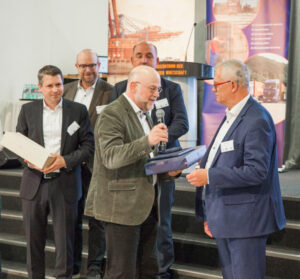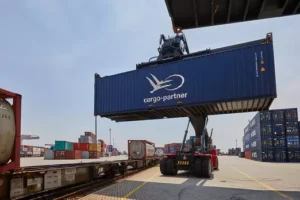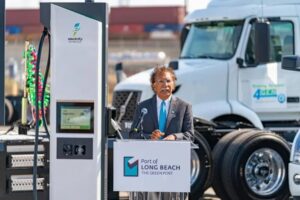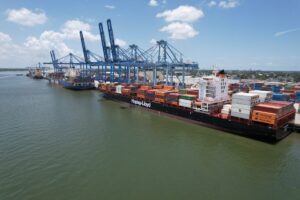A.P. Moller – Maersk has started 2018 with strong revenue growth, but its CEO, Søren Skou, has criticised its ocean business performance as “unsatisfactory”.
In Q1 2018 (see full results table below), Maersk had a revenue growth of 30% to US$ 9.3 billion, 10% excluding Hamburg Süd, with growth in all business segments and a strategic transformation well underway.
Skou said: “In the first quarter of 2018, we reported a 30% revenue growth and the integration of the business is well underway with a successful start to the Hamburg Süd integration and the closing of Maersk Oil transaction in March with an accounting gain of $2.6 billion.
“At the same time, on the short-term performance, our result, especially in the ocean-related part of the business, was unsatisfactory.
“In response to the current challenging market conditions we are implementing a number of short-term initiatives to improve profitability and we reiterate our guidance for 2018.”
Maersk reported that its underlying result after financial items and tax is negative $239 million and that a “number of short-term initiatives” would be implemented to improve profitability.
It also announced that it expects its full-year 2018 EBITDA to be in the range of $4 to 5 billion from last year’s $3.5 billion and that its aim for this year's underlying profit would be to raise it above 2017’s 356 million.
However, Maersk's statement pointed out that “increased uncertainties” from geopolitical risks, trade tensions and other factors affecting freight rates, bunker prices and rate of exchange may affect the results.
Find out more about Maersk's new financial reporting structure for Q1 2018
A.P. Moller – Maersk increased its revenue to $9.3 billion with volume growth in Ocean – excluding Hamburg Süd – at 2.2%, as expected slightly below estimated global demand growth of 3-4%.
The non-Ocean businesses reported a revenue growth with 6% in Logistics & Services and 11% in Terminals & Towage, reflecting strong growth in volumes mainly driven by commercial wins and new terminals and services.
Further, synergies have been realized from increasing collaboration especially between Ocean and gateway terminals, leading to volume growth significantly above the market growth.
Earnings before interests, tax, depreciation and amortization (EBITDA) increased by 5% to $669 million, negatively impacted by the adverse rate of exchange development compared to same period last year of around net $100 million.
Earnings in Ocean of $492 million was impacted by higher unit costs among others due to adverse developments in bunker price and rate of exchange.
For the non-Ocean businesses, the higher volumes in Terminals & Towage led to an improvement in EBITDA from $139 million to $196 million, while Logistics & Services reported slightly lower EBITDA of $23 million from $32 million.
Lars Jensen, CEO, SeaIntelligence, recently forecasted the industry’s developments as far into the future as 2025 in his 'Liner Shipping in 2025' Port Technology technical paper










